Responding to market demand
Two years ago we had a conversation with our partners in the Santa Ana region of El Salvador, Andres and Jose Antonio Salaverria from Jasal, about changes we could see in the market. We realised that the volumes of washed El Salvador coffee we were buying didn’t allow for enough variation of profile, and that some countries are seeking more differentiation with a strong preference for fruity coffees. This is especially true in markets where customers are just starting to demand higher quality coffees.
So the Salaverria’s began building infrastructure at their mill, Las Cruces, to produce higher volumes of Honeys and Naturals. Historically they had a lot of patio space but limited beds. It is easier to process Honeys on raised beds, as the drying mucilage gets very sticky and difficult to manage on the patios. In the past two years Jasal have built enough raised beds to hold 375 bags worth of drying coffee cherry, and have plans to build more.
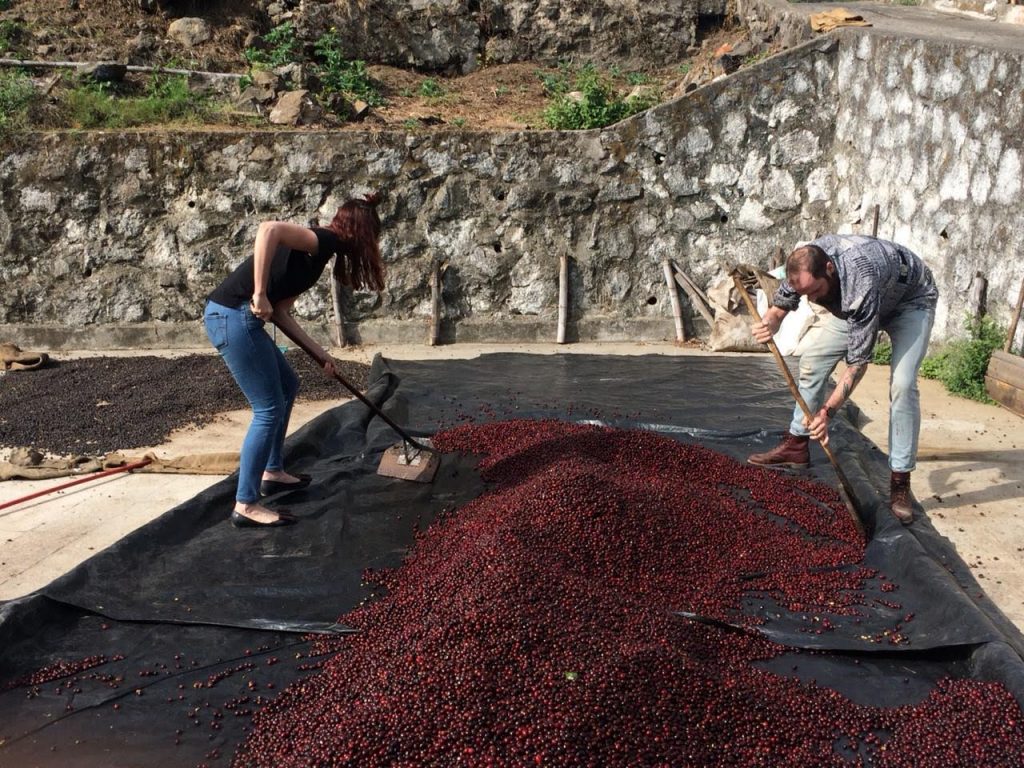
Lower than expected volumes
We were expecting good volumes of Naturals and Honeys from Jasal this year, and while we do have a broader range of these coffees, things didn’t entirely work out as planned.
Coffee works on a two year cycle of productivity, one year the yield is high, the next it is low. This was a low-yield year for El Salvador, and sadly poor weather has reduced these yields even further. The Jasal farms experienced unusual rainfall, and very windy conditions.
Unusual rainfall patterns
In this part of the world, the heavy rains required for coffee trees to flower usually fall between May and June, and then lighter rains during July and August produce the cherry. September to December, when the cherry are maturing through the last stages of development, are usually quite dry. This year there was a lot more rain between September and December, which caused the cherry to mature more rapidly, resulting in underdeveloped and lighter beans that have to be removed during processing.
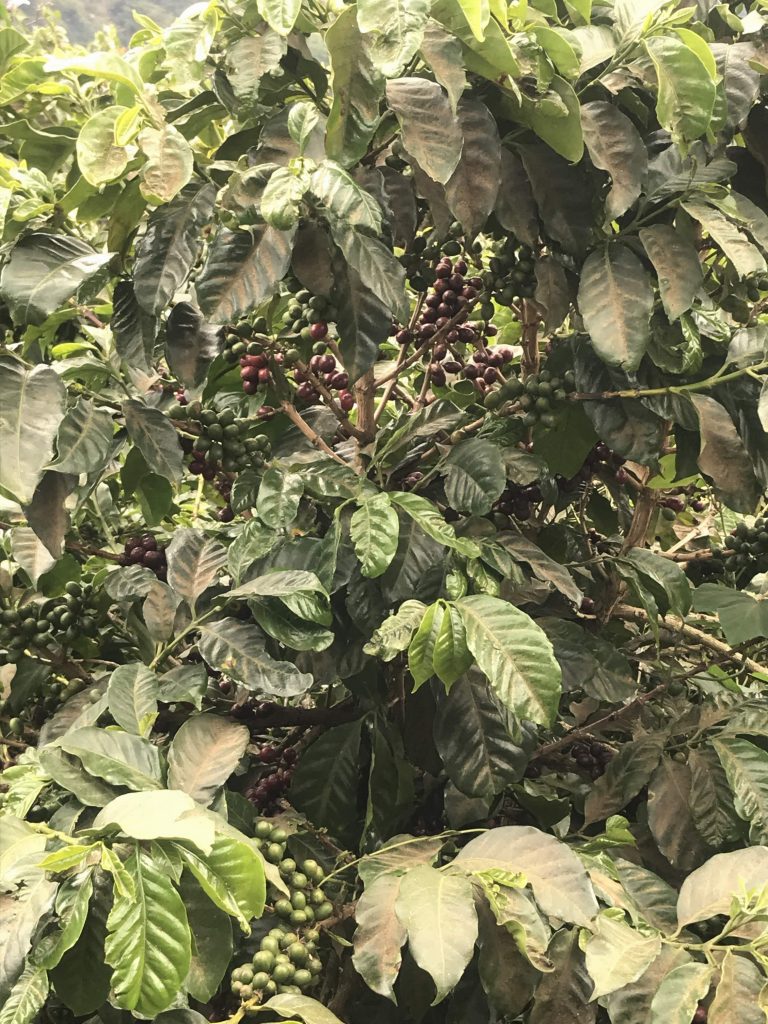
While when we visited in February most of the volumes of cherry had already been harvested there where some small amounts of green and red cherries on some parts of the farm. Displaying some of the complexities of coffee producing, when rain is coming too late and still causing flowering there can often be cherry produced that does not have enough time with the right climate to mature completely. 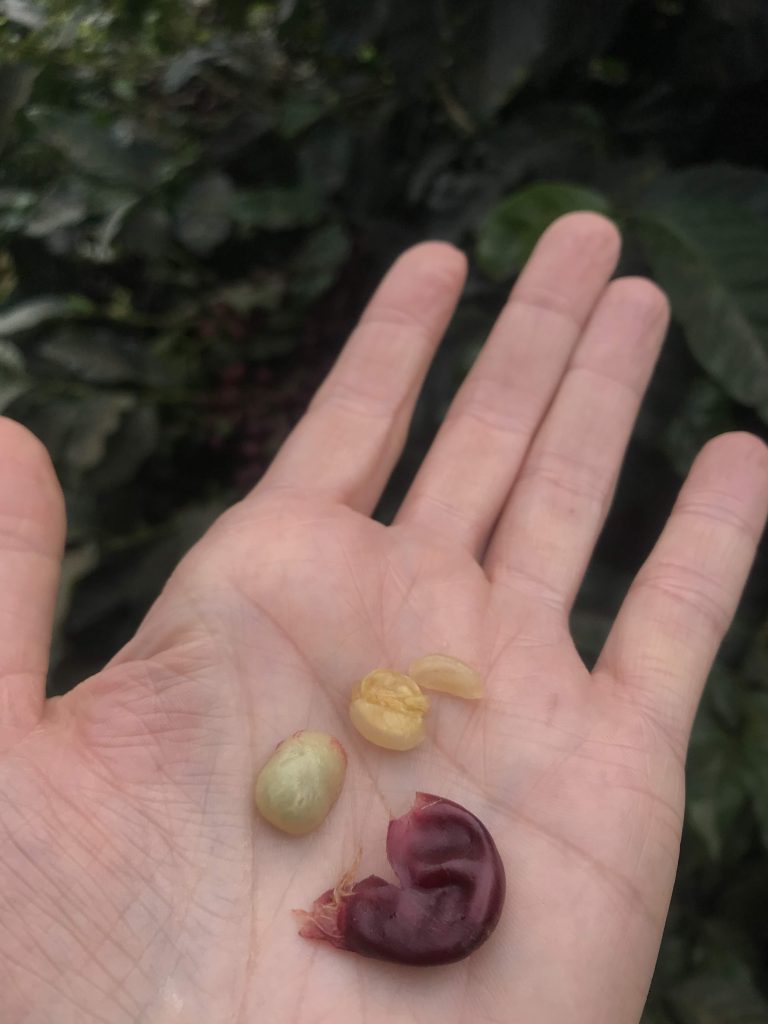
An example of the affects of changing rainfall in the Santa Ana region of El Salvador. Both beans here come from the cherry pictured, the bean on the left is fully developed while the bean on the right is completely under developed. This is a part of why the volumes from Jasal have been so reduced this year.
Strong winds
Windy conditions are an ongoing battle on the Jasal farms. Large trees are planted in intricate formations to serve as windbreaks for the coffee trees. Unfortunately this year the winds were so strong, even these large trees couldn’t offer protection. The rapidly maturing cherries with lighter beans inside were easily blown off the trees, resulting in further losses.
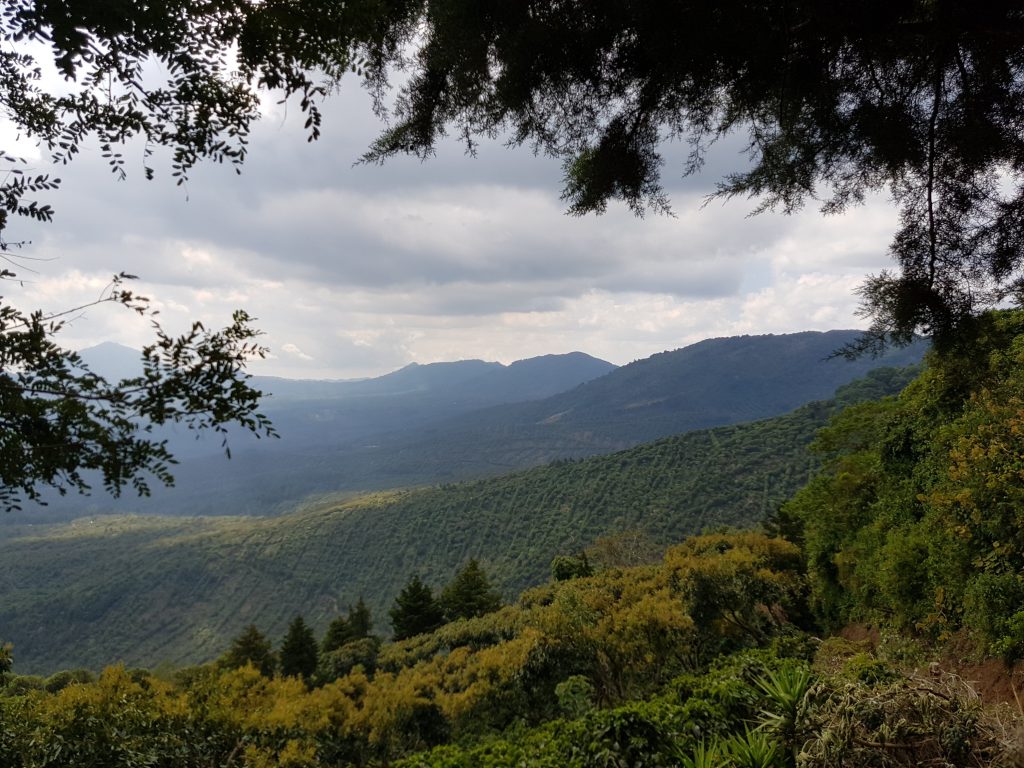
San Fransisco farm views 
Kenia, is the much loved boss at the Las Cruces mil. She makes sure we all behave and give her lots of love when we visit. 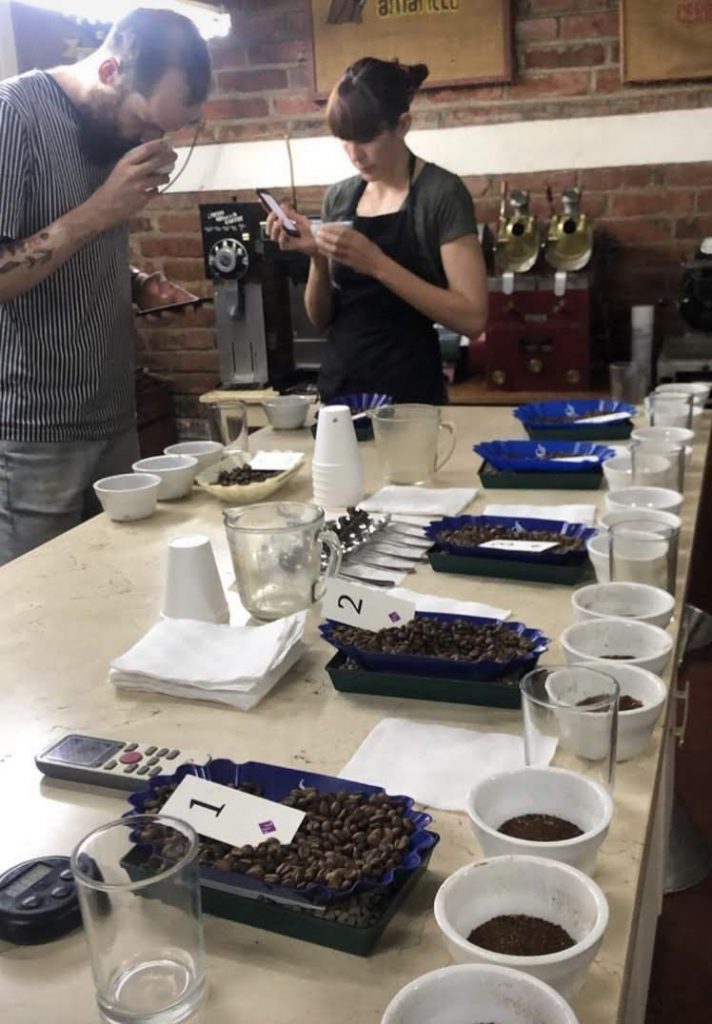
Jamie and Joanne cupping at the Las Cruces mill. When we are cupping on buying trips we cup the coffees in multiple rounds, usually separating the different processes onto different tables and doing a first cupping of all the coffees to narrow down the initial selection before we cup again. 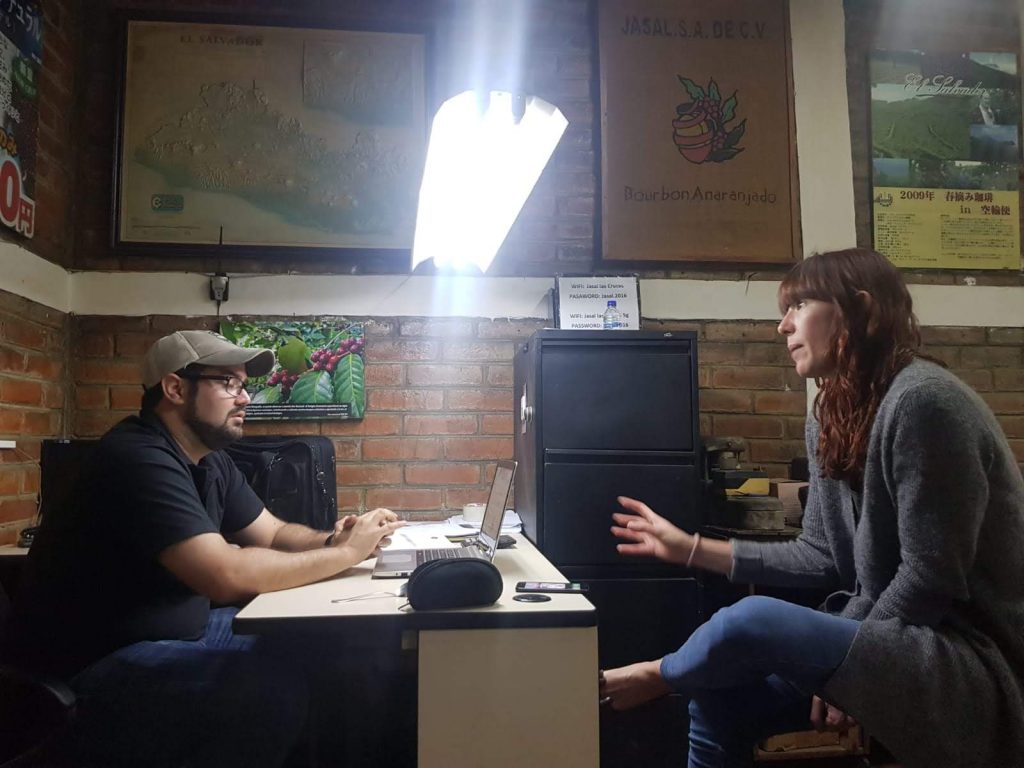
Joanne discussing the coffees with Andres after cupping at the Las Cruces mill.
Great tasting survivors
While volumes are down, the coffees are tasting great! We have already contracted a good range of Naturals, Washed and Honeys which will ship this week, and I will be going back next month.
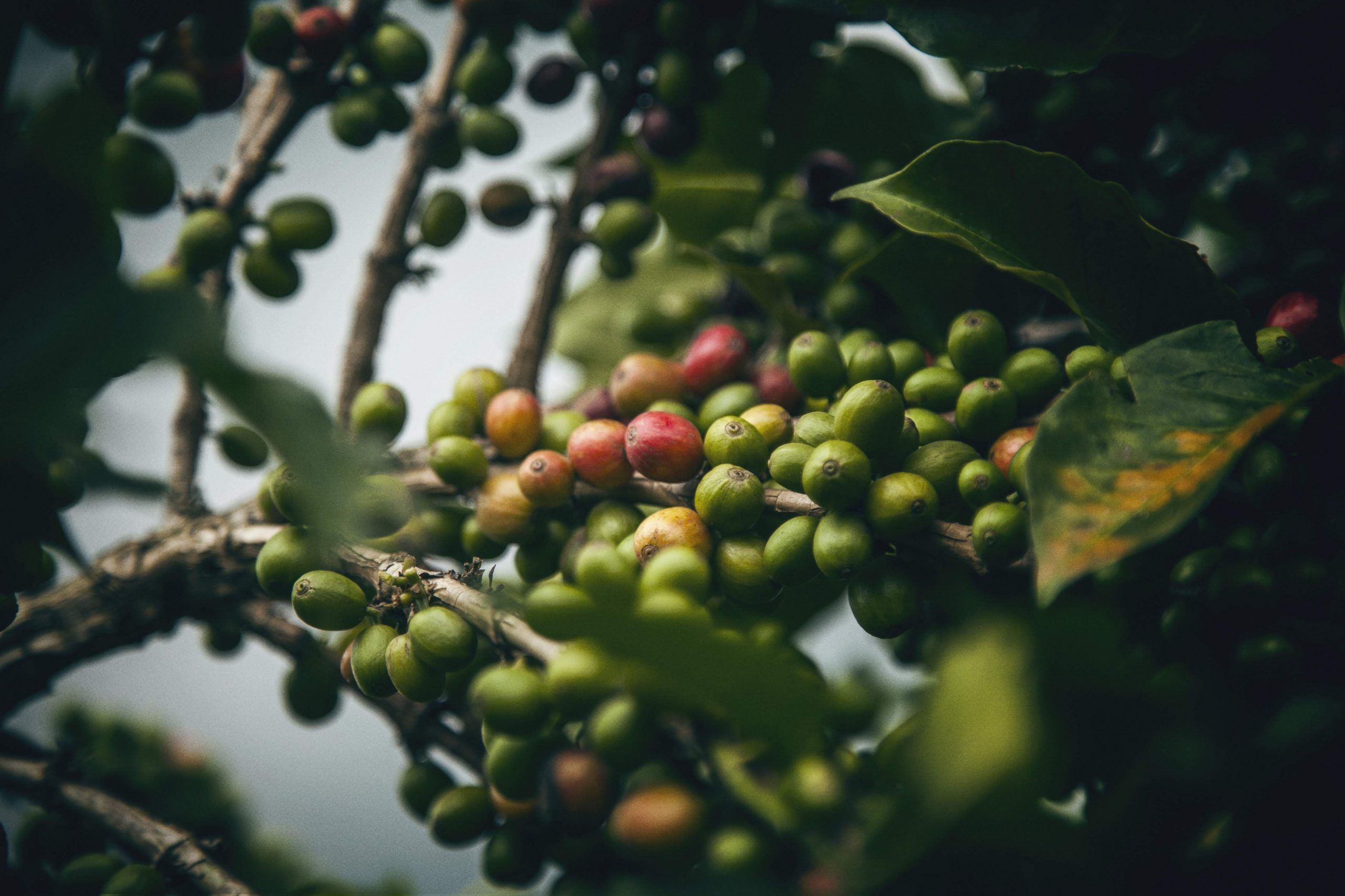
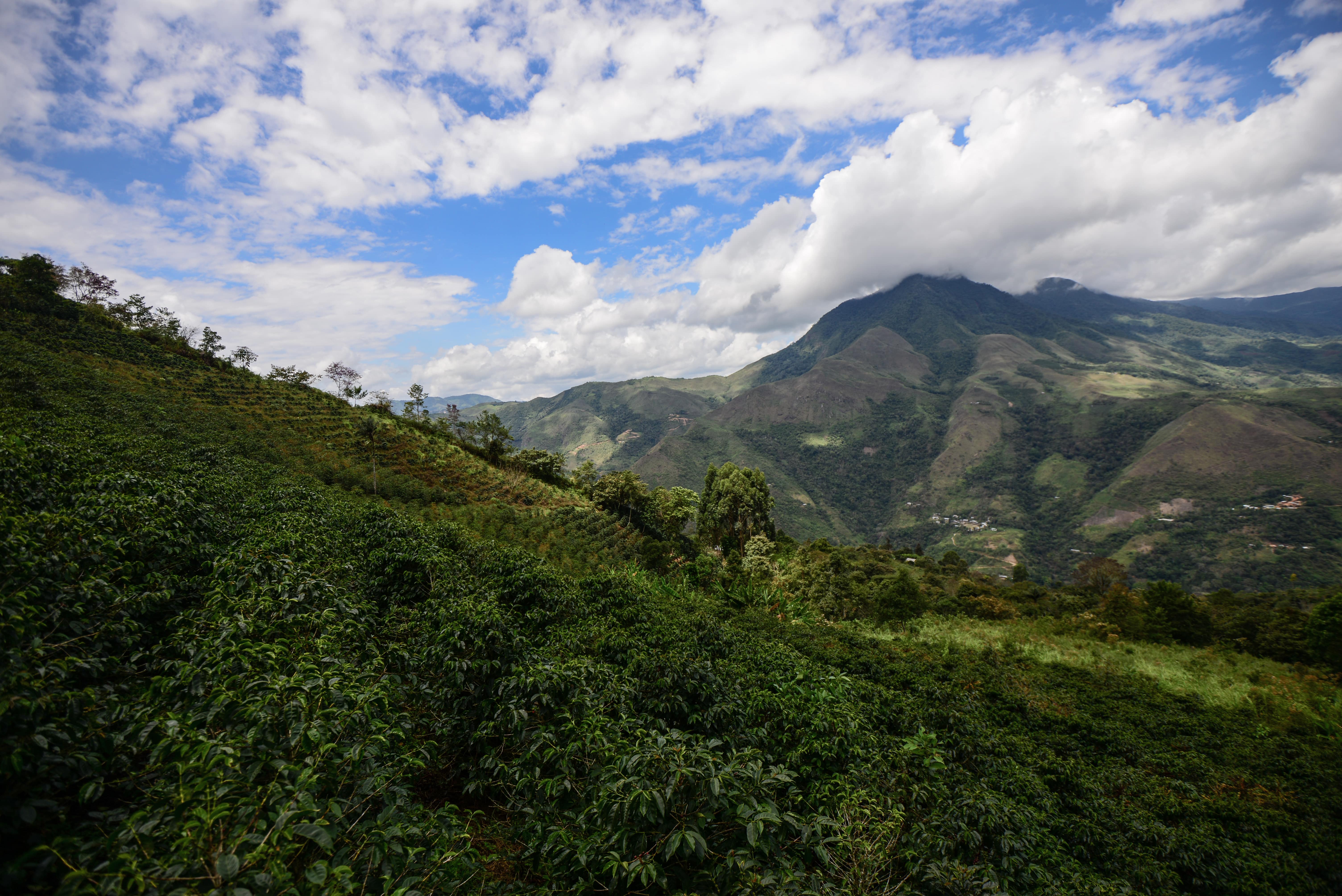

0 Comments